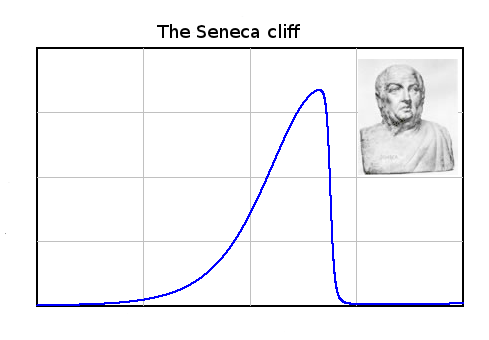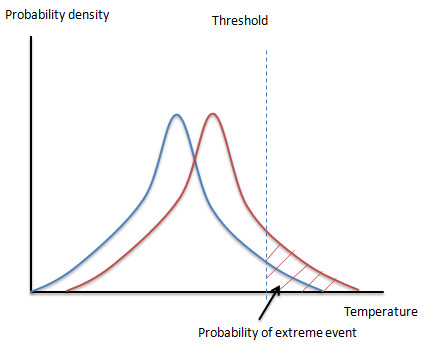Há sempre muito para dizer sobre isto, mas confesso que para mim é mais fácil despejar o que vou lendo, e quem quiser, que faça o seu trabalho de casa, lendo aquilo que achar que deve ler.
O tom ressaibado do comentário tem a ver com o facto, de muita gente, alinhar as suas convicções nesta matéria do aquecimento global, não em termos do que os factos e o processo científico (digo, deliberadamente, processo científico) nos vão confirmando, mas em função das suas simpatias ideológicas.
Margaret Tachter (ver abaixo) prova que a aceitação da responsabilidade humana nas alterações climáticas não deveria decorrer de ser de direita ou de esquerda - é tão irónico ver intelectuais de direita, do centro-direita, e mesmo da esquerda democrática, portugueses, caírem na mesma tipo de cegueira ideológica de que acusavam, com razão, os intelectuais comunistas e afins, em tempos idos. Existe, contudo, uma diferença: estes tinham mais desculpas das que têm aqueles agora (a qualidade dos memes criados pela história e pela experiência dos países comunistas era superior à dos memes criados, nos dias que passam, pela extrema -direita norte-americana, e pelos serviços de marketing da Exxon e quejandas).
Artigo de Marty Weitzman:
Evidências:
-
Freakout-nomics - Paul Krugman Blog - NYTimes.com:
"If you think conservatives are freaking out over the growing prospects
that health care reform will, in fact, happen, wait until you see the
freakout over climate change.
You see, a snowy winter in the northeast United States was supposed to
have proved the climate skeptics right, after all. But a funny thing
happened while they were celebrating: globally, this is shaping up as
the warmest winter on record"
- Australia has hottest-ever summer|Climate Ark:
"Western Australia has sweated through its hottest ever summer,
recording average temperatures just shy of 30 degrees Celsius,
officials said on Monday.
Weather officials said the giant, dusty state roasted at an average of
about 29,6 Celsius during the southern hemisphere summer, 0,2 degrees
over the previous high in 1997-1998.
The state capital Perth also endured its driest summer since records
began in 1897, with just 0,2 millimetres of rain falling in December,
January and February.
State-wide information is only available since 1950."
- New research sheds light on Antarctic ice melting|Climate Ark:
"Jane Ferrigno is the lead author of that new report. She says
scientists have known for a while that some of the peninsula's ice
shelves are breaking up.
Ms. JANE FERRIGNO (Geologist, U.S. Geological Survey): That started at
least a decade ago in the northern part of the peninsula, but we looked
at all the ice fronts on the peninsula from north to south.
In the southern area, we're finding that all the ice fronts are
retreating. In the northern part of the peninsula, the majority of ice
fronts are retreating, and that's something we neither expected but
we're highly interested in finding that out.
RAZ: At a peninsula, the area where this research was focused on, is
sort of like a canary in the coal mine, right? I mean, what does it
tell us about larger trends?
Ms. FERRIGNO: The fact that the ice shelves are changing on the
peninsula is a significant signal that global change, climate warming,
is affecting the ice cover of Antarctica. It's affecting first the area
that's towards the north, that's slightly warmer, but the effect of the
warming has traveled from the northern part of the peninsula to the
southern part of the peninsula, where it's colder.
Our next concern is to see exactly what's happening in the continent
itself. We've seen some changes there, but we need to look closely and
see what else might be happening.
RAZ: Give us a sense of how much ice has been lost over the past, say,
10 years.
Ms. FERRIGNO: I think I'll go back 20 years, and in the last 20 years,
I would say at least 20,000 square kilometers of ice has been lost, and
that's comparable to an area somewhere between the state of Texas and
the state of Alaska.
RAZ: So about the size of the state of Texas in terms of ice has been
lost in the past 20 years."
- Tempestade na Madeira é "mais um sinal de um mundo que está em mudança" - Local - PUBLICO.PT:
"Portugal “vai viver muito as alterações climáticas” e a violenta
tempestade na Madeira é apenas mais um sinal de uma tendência global,
defende António Baptista, director do centro norte-americano de Ciência
e Tecnologia para a Observação de Margens Costeiras."
“Não é possível voltar ao passado nas zonas costeiras. É preciso
antecipar agora, tomar as medidas necessárias para ter zonas saudáveis,
que permitam aos animais ser saudáveis e aos homens também. Não há
ambiguidade ou dúvida. É profunda e irreversível a mudança”, afirma.
“Pode discutir-se qual é a grandeza das mudanças climáticas a nível
global, mas não há dúvida de que os gases com ‘efeito de estufa’ estão
a aumentar de forma espetacular. (...) A questão agora não é julgar a
sociedade pelo que fez para que chegássemos a isto, mas olhar para o
futuro e perceber o que fazer para gerir melhor os recursos”.
Citação:
As diferenças:
- Senator Inhofe's attempt to distract us from the scientific realities of global warming:
"There has been a shift in the climate debate over recent months. It
seems people are talking less about the science and more about the
alleged actions of a small group of climate scientists. Senator Inhofe
is an extreme example with his recent attempt to criminalize 17 leading
scientists. These accusations are largely based on stolen private
emails that are being quoted out of context and/or without
understanding of the science involved. Unfortunately, this is shifting
the focus away from the most important element of the climate debate:
the scientific reality of global warming. The empirical evidence that
global warming is happening and that humans are the primary cause has
been and continues to be observed, measured and documented in the
peer-reviewed scientific literature."
-
James Inhofe, Senate’s top skeptic, explains his climate-hoax theory | Grist:
"Sen. James Inhofe (R-Okla.), one of the world’s most vociferous
climate skeptics, is practically giddy these days. He’s argued since
2003 that global warming is a massive “hoax” being played on the
American people, and now he believes he’s got more backing than ever
before for his claim, from “Climategate” emails to errors in the latest
report from the Intergovernmental Panel on Climate Change to the recent
blizzards in Washington, D.C. (He gleefully hyped an igloo built by his
grandkids as “Al Gore’s new home.”)"
Ciência:
- Misinterpreting a retraction of rising sea level predictions:
"A new skeptic argument has emerged that upon close inspection, is a
polar opposite to the scientific reality. This week, scientists who
published a 2009 paper on sea level rise retracted their prediction due
to errors in their methodology. This has led some to claim sea levels
are no longer predicted to rise. This interpretation was helped no
doubt by the unfortunate Guardian headline 'Climate scientists withdraw
journal claims of rising sea levels'. However, when you read the
article and peruse the peer-reviewed science on future sea level, you
learn that the opposite is the case."
Evidência doutro tipo de coisa:
Já existe tradução para português, dos argumentos da Skeptical Science contra as alegações denegacionistas do aquecimento global:

